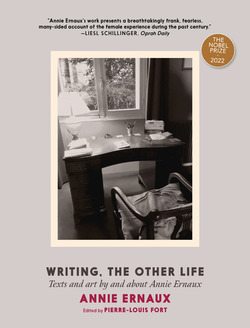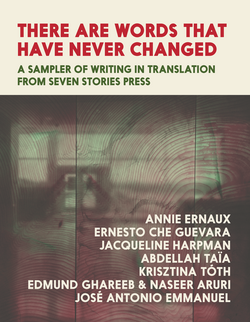“Every Abdellah Taia novel is written with a sense of urgency and immediacy. Here lives sensuousness and passion, a fusion of love and violence. Taia’s language arouses the reader’s senses. Reading Living in Your Light, I felt I was hearing a dangerous secret. Taia will seem to be whispering in your ear.”
– Lynne Tillman
“Abdellah Taïa writes with great tenderness and sympathy about the intricacies and complexities of his characters' private lives. He then creates high drama from social life and sexual life and the gap between who his protagonists are and what they most desire. He is at his most brilliant in Living in Your Light.”
– Colm Toibin
“Taïa’s wonderfully ferocious and contradictory heroine Malika will make you weep and quail by turn. Her testament is a powerful antidote to the sentimentality and exoticism that so often distorts depictions of Arab womanhood.”
– Zoë Heller, author of Everything You Know
“Everything about Living in Your Light is unexpected. A Moroccan woman of the disappointed independence generation speaks of her struggle to keep power over her life, of what she knows of the suffering of the poor, and of women who are autonomous in a land where colonialism never went away. A poetic and fierce and original work.”
– Darryl Pinckney
“An illiterate woman from the Moroccan countryside recounts her life in Taia’s hypnotic and masterful latest (after A Country for Dying). The novel opens in the 1950s with the narrator, 17-year-old Malika, falling in love with Allal, a man with a male lover named Merzougue. After Malika and Allal marry, he leaves with the French colonial army to fight in Indochina. She and Merzougue soon learn of his death in combat, and Taia stages a touching scene in which the pair pantomime the burial of Allal’s unrecovered body in the mausoleum where Allal and Merzougue used to meet to make love. In the novel’s second section, a 30-something Malika, now remarried, faces the possibility of a new loss: a white woman from France named Monique wants Malika’s oldest daughter Khadija to be her live-in maid. As Malika faces off against Monique, she confronts the ways in which, even after Morocco’s independence, the French are “still here, very much so.” The final section depicts an elderly Malika confronting a thief in her home, a young gay man from her neighborhood named Jaâfar, who wishes to be sent back to prison to reunite with his lover. Jaâfar was also friends with Ahmed, Malika’s gay son who cut off contact with her after he immigrated to Paris. With magnificent precision and gorgeous, understated lyricism, Taia homes in on three events in Malika’s life that, taken together, contain the historical sweep of her life and her country. This is unforgettable.”
– Publisher's Weekly (starred review)









